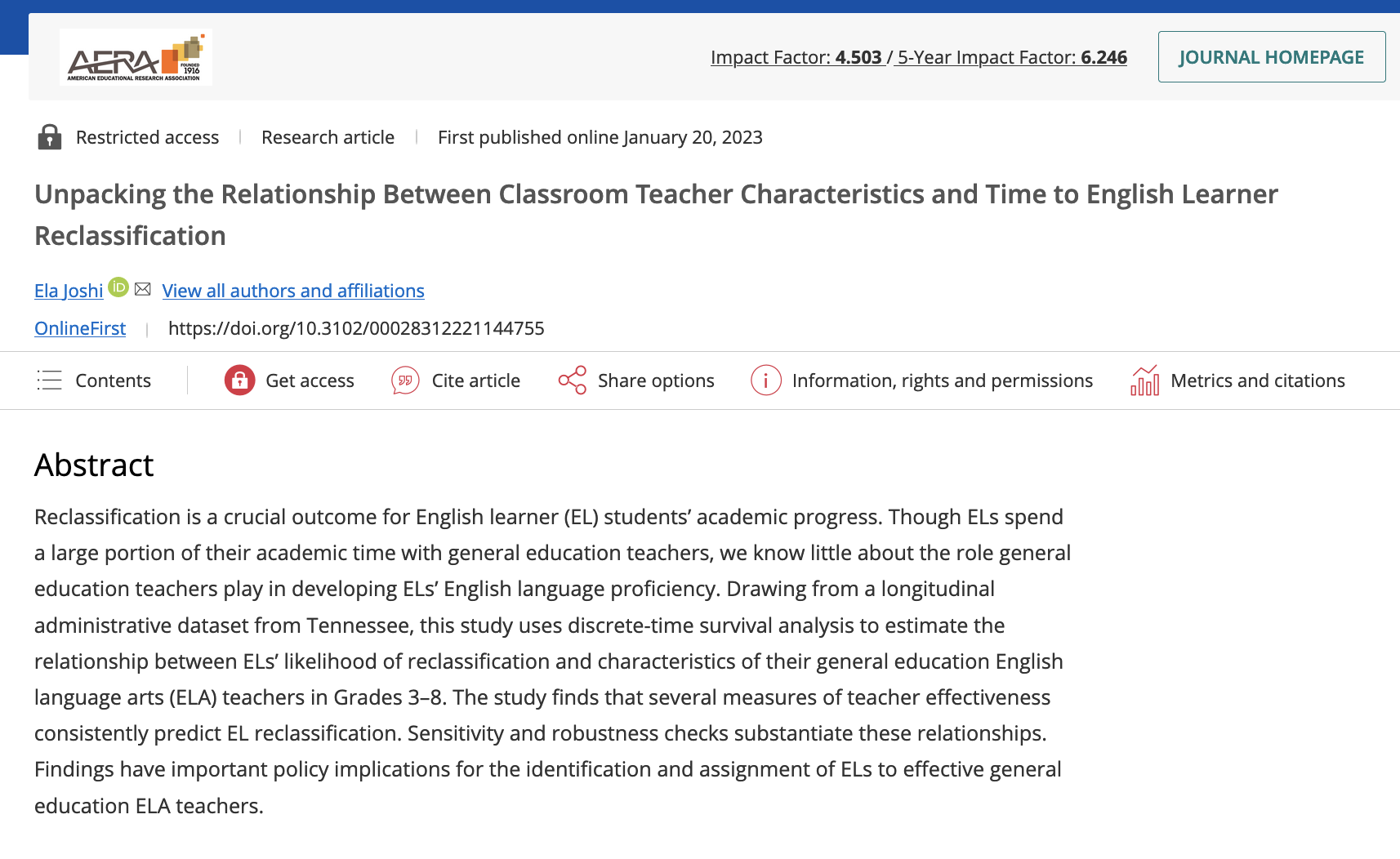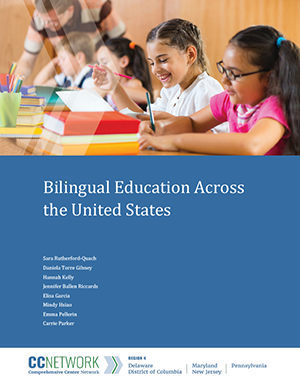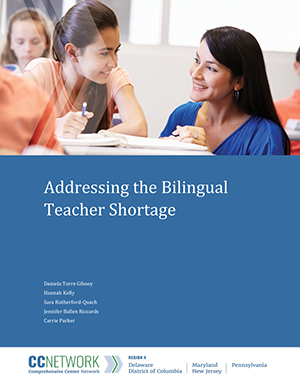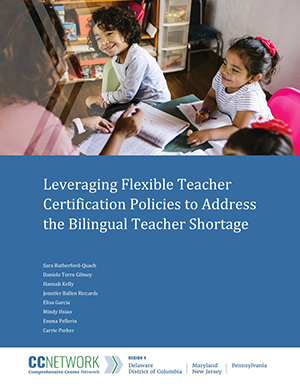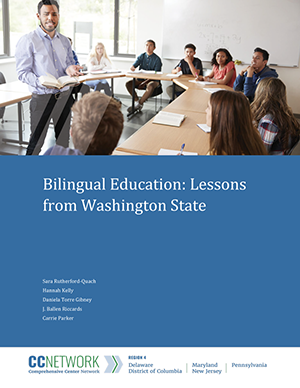The language we use affects the way we perceive our world. Language can help create new understandings and expand our view of what exists and what is possible, and it also can limit our understanding. The terms we use to describe students who speak two or more languages or speak a language other than English at home, for example, impacts how we envision and develop programs and policies for those students.
This report shares findings from a survey conducted with Newcomer students, defined as individuals attending schools in the United States for three years or less and who speak a language other than English at home, in Oakland Unified School District. The survey was designed to inform the work of the Newcomer Wellness Initiative, a program … Continue reading Newcomer Wellness Initiative 2019-20 Evaluation Report
The Adapting and Innovating Project examined the experiences of students, teachers and administrators across New England districts during the 2020-2021 school year to better understand how they responded to COVID. The work included an Innovation Profile of the Maria Muniz Academy, the only dual language high school in Boston, as well as a blog summarizing … Continue reading Think Forward New England: New England’s Education Systems Navigate COVID-19 and Map a New Way Forward
Project: Pathway for Academic Success
The evaluation of the Pathway to Academic Success expansion grant is a 2-year RCT designed to meet WWC group standards without reservations that assesses the impact of this reading and writing intervention for teachers who serve secondary English Learners. It also includes a 1-year implementation study, which focuses specifically on how Pathway instructional strategies and … Continue reading Pathway for Academic Success
For the last two years, a team of educators from the U.S. Virgin Islands (USVI) has collaborated with REL Northeast & Islands researchers on a project designed to ensure equitable access to high-quality instruction for USVI English learners. The team—composed of two administrators from the Virgin Islands Department of Education (VIDE), two district English as … Continue reading REL Northeast & Islands Virgin Islands English Learner Project
The purpose of this study is to explore factors associated with positive transition outcomes from high school to postsecondary life for students who are both English learners (ELs) and have a disability. Research suggests these students face multiple barriers to postsecondary success, but few studies have identified the challenges or successes these students experience during … Continue reading Mixed-Methods Exploration of Factors Associated with Postsecondary Success English Language Learners with Disabilities
Extending prior research that explores the relationship between contextual factors, engagement, and learning in online settings, this mixed-methods study examines outcomes in a MOOC designed for teachers of English learners (ELs). The study identifies structural and social supports available to some course participants (release time, stipends, participating with colleagues, and having a facilitator who convened … Continue reading Taking Away Excuses to Quit: The Role of Supports in Completion and Learning in Online Professional Development for Teachers
This blog introduces a series of policy briefs that were developed in collaboration with the New Jersey Department of Education to better understand the state of bilingual education across the country, potential strategies to address the shortage of bilingual educators, and approaches to bilingual education policy and programming. View Resource Citation: Rutherford-Quach, S., Kelly, H., … Continue reading Examining Bilingual Programs and Policies
In this brief, the authors define some of the key terms in bilingual education and then provide an overview of the different state policies for the provision of bilingual education to English learners. View Resource Citation: Rutherford-Quach, S., Torre Gibney, D., Kelly, H., Ballen Riccards, J., Garcia, E., Hsiao, M., Pellerin, E., & Parker, C. … Continue reading Bilingual Education Across the United States
In this brief, the authors share strategies that can help mitigate bilingual teacher shortages and provide considerations for state and district leaders who are interested in addressing these shortages. View Resource Citation: Torre Gibney, D., Kelly, H., Rutherford-Quach, S., Ballen Riccards, J. & Parker, C. (2021). Addressing the bilingual teacher shortage. CCNetwork. Related Project: Mid-Atlantic … Continue reading Addressing the Bilingual Teacher Shortage
Resource: Leveraging Flexible Teacher Certification Policies to Address the Bilingual Teacher Shortage
In this brief, the authors share strategies that state education agencies may use to provide more flexibility in teacher certification policies and thereby mitigate bilingual teacher shortages, including: 1) providing educators multiple pathways to certification, 2) offering prospective teachers a menu of certification requirements, 3) allowing educators to earn probationary certifications, and 4) creating flexible … Continue reading Leveraging Flexible Teacher Certification Policies to Address the Bilingual Teacher Shortage
In this brief, the authors describe Washington state’s approach to bilingual education and detail the ways in which state leaders have leveraged policy and funding to expand access to it. They also offer specific policy considerations for strengthening bilingual education and developing bilingual educators in states across the country. View Resource Citation: Rutherford-Quach, S., Kelly, … Continue reading Bilingual Education: Lessons from Washington State

